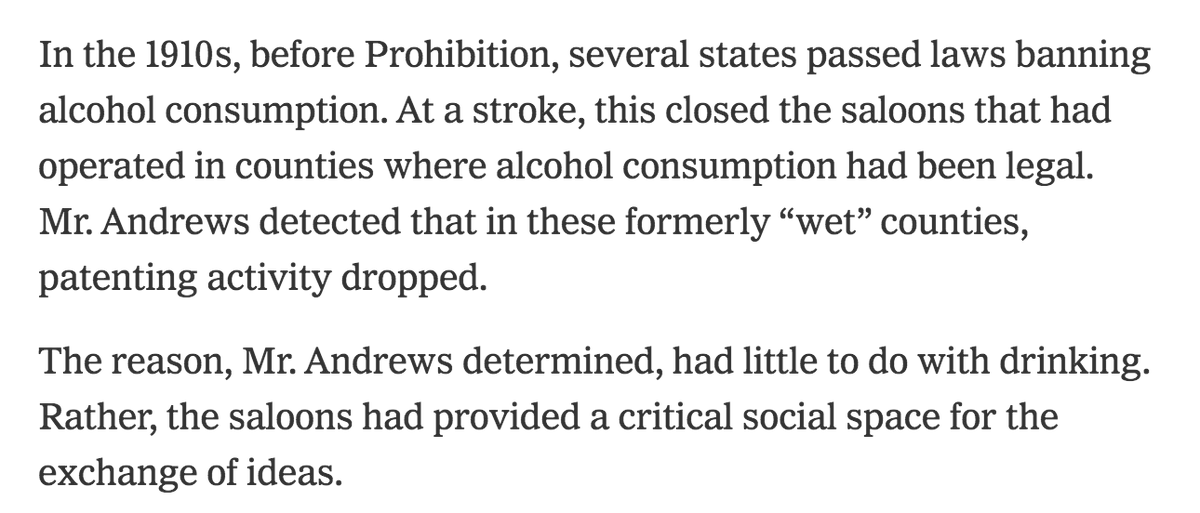"[I]if you can’t go out to eat, why even live in the city?" And if you don't have a lot of nice consumption-amenities, the nudge for super productive people to agglomerate and become even more productive is marginally weaker. https://www.nytimes.com/2020/11/03/business/economy/cities-restaurants.html
An interesting finding: counties that went dry before Prohibition saw a drop in patent activity. Urban consumption amenities are actually production amenities. https://drive.google.com/file/d/1mYKax3qhnzZ3lB6SxD3Bv3q4zBmV2iUI/view
This is why I remain agnostic about our long-prophesied remote work future. Companies might temporarily accede to it out of pandemic necessity; maybe it will even become a standard fringe benefit. But that would be bad, to the extent that it will make us all less productive.
If this will be bad for society, but it could be doubly bad for young workers. Purely anecdotal, but I feel like so much of professionalization comes down to (a) observing how older peers carry themselves and (b) cultivating friends, mentors, and ideas over drinks.
Another fact that never comes up in this discussion is that *a lot* of employees have a strong preference for working in fancy office in a prominent location. (Why else would firms pay so much?) I doubt that this preference magically disappears after 2020. https://twitter.com/conorduffy_7/status/1325878287495729154?s=20

 Read on Twitter
Read on Twitter


